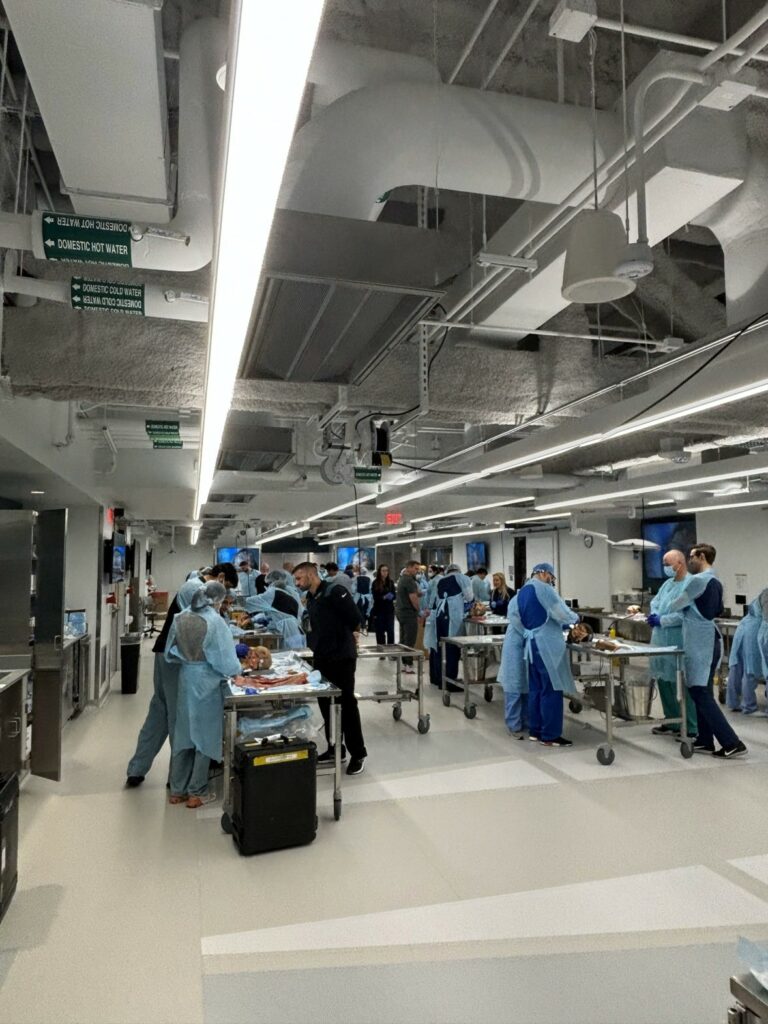On June 1, the University of Pittsburgh Department of Otolaryngology-Head & Neck Surgery hosted its first advanced course on microvascular reconstruction in head and neck surgery.
“This puts us on the national circuit of courses,” said the course co-director Matthew Spector, MD, FACS, Division Chief, Head and Neck Surgical Oncology & Microvascular Reconstruction, and Director, Head and Neck Surgical Oncology & Microvascular Reconstruction Fellowship.
Ohio State has a well-known annual fall course that covers the basics. Now Pittsburgh will host a complementary follow up – “University of Pittsburgh Head and Neck Microvascular Fellow Advanced Mandibular and Midface Osteotomy Simulator and Techniques Course” – which will be offered in the spring to learn advanced reconstructive techniques – a natural Part II. Dr. Spector was motivated to create the course because he thought there was a knowledge gap in bony reconstruction, especially in making osteotomies.

Dr. Spector — along with his co-director Dr. Shaum Sridharan — brought in eight other faculty from around the country to help teach the course, which was geared toward head and neck oncology and microvascular reconstruction fellows. Forty-two senior residents and fellows from around the country attended, along with one international physician.
The was held on only one day, with minimal lecture time. Attendees were given readings and work ahead of time so the day could be focused on the tasks at hand, like an osteotomy simulator and cadaver dissection.
Reconstruction of the head and neck with bone flaps is very common, Dr. Spector said, but there are a lot of tricks and tips. “A lot of people use virtual surgical planning for a lot of their things, but we do a lot of things by hand here at UPMC,” he added. Free-handed techniques for bony reconstruction of the mandible and maxilla were taught, with anatomy donated by the skull-base surgery team.
Corporate sponsorship is essential to being able to host these advanced courses. Directors Spector and Sridharan will be publishing on the simulator they developed. The day was a success, Dr. Spector said. Next year, he plans to make the simulator out of different materials because while it worked well, it was a little difficult to cut.
They are even thinking about doing an international iteration, in order to reach a broader group of head and neck surgeons.
“This is big; it puts us on the reconstructive map,” Dr. Spector said.
